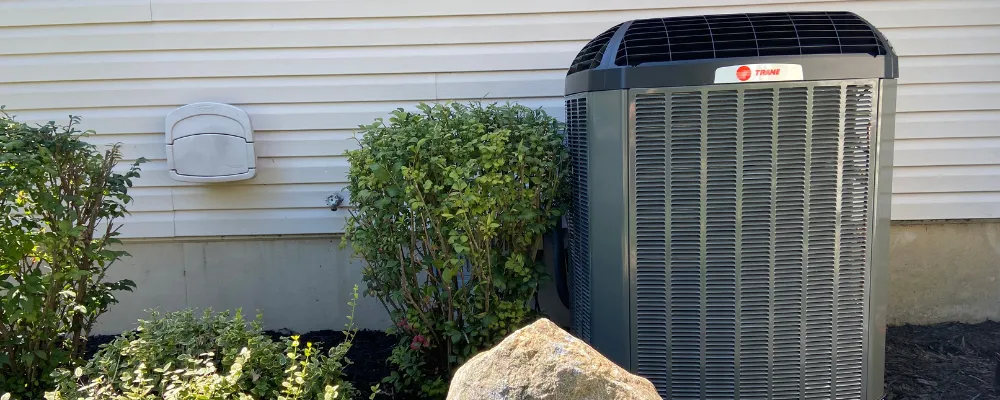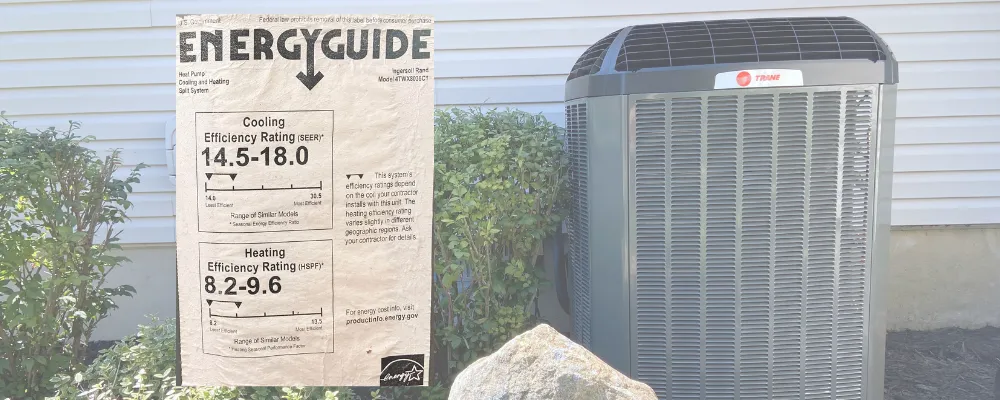Are you wondering how many BTUs you need to effectively heat or cool your home? Understanding the concept of BTU and its importance in heating and cooling systems is essential for determining the right equipment for your space. In this article, we explore the definition of BTU, its applications in various industries, and how a BTU calculator works. We also discuss the benefits of using a BTU calculator, more commonly referred to as a “load calculation” in the HVAC industry, including accurate determination of heating and cooling requirements, energy efficiency optimization, and cost savings. Additionally, we delve into the factors to consider in BTU calculations, such as the area and volume of the space, insulation properties, and climate conditions, before presenting you with our free BTU calculator!
What is a BTU?
The British Thermal Unit, or BTU, is a traditional unit of heat. It is part of the British Imperial system of units, but it’s commonly used worldwide, notably in the field of heating and cooling technologies like air conditioning units. Understanding the BTU is critical to appropriately size air conditioners and heating devices, ensuring they can meet the desired temperature increase or maintain a specific airflow in a given space.
Definition of BTU
A British Thermal Unit, or BTU, is defined as the amount of heat required to raise the temperature of one pound of water by one degree Fahrenheit at a constant pressure. In the HVAC industry, BTUs refer to the quantity of heat an air conditioning unit can remove from a room per hour, or the heat a heater or boiler can produce.

Importance of BTU in Heating and Cooling Systems
Determining BTU usage is critical for the correct size air conditioner or heater to be installed in a room or for large-scale industrial applications. Having a solid understanding of how many BTUs are required for your specific needs is crucial. Without this, you could end up with a device that is either overpowered, causing excessive energy use and high utility bills, or underpowered, struggling to achieve the desired temperature increase.
Common Applications of BTU in Various Industries
BTU is a universal measurement of heat energy, making it applicable across various sectors and industries. BTUs are primarily used in industries that deal with heating and cooling, like the HVAC industry. Engineers and technicians utilize a BTU calculator or cooling BTU calculator to determine the energy requirement of a given area, considering factors like square footage and insulation. This has residential, commercial, and industrial applications to ensure optimal efficiency and functionality.

How Does a BTU Calculator Work?
A BTU calculator (load calculation) considers several variables, including the size of the space, insulation level, desired temperature increase, and more. It will then calculate the BTUs required to heat or cool that area. It’s an indispensable tool for HVAC professionals, enabling them to accurately size an air-conditioning unit or heating system for a specific location.
Understanding the Heat Energy and Heat Transfer
To appreciate how a BTU calculator serves a heating or cooling system, it’s essential to understand the principles of heat energy and heat transfer. These concepts factor into the calculation of any given air conditioning unit size or heating unit size. Heat energy is measured in BTUs, and the process of transferring this heat to or from a space is a vital element of heating or cooling. The effectiveness of this heat transfer impacts how the air conditioning or heating device manages to maintain a comfortable temperature.
Components and Inputs of a BTU Calculator
A BTU calculator requires several inputs to provide a suitable estimate of the necessary BTUs. The principal parameters are typically the nature of the space (whether it’s insulated or not), the size of the area (square footage), desired temperature increase or decrease, and the average external temperature in the region. By taking these factors into account, the calculator will estimate the BTUs needed to achieve the desired temperature.
Calculation Methods used in BTU Calculators
BTU calculators use mathematical models to determine the approximate BTUs required for a specific heating or air conditioning task. Various calculators may use different methods, but generally, they will calculate the square footage or volume of an area, apply an estimated heat loss or gain value based on the nature of the space and the outdoor temperature, and factor in the desired temperature change to produce an estimated BTU usage. It’s essential to understand the BTU calculation methodology to appropriately size air conditioner or heating units.

Benefits of Using a BTU Calculator
Using a BTU Calculator or load calculation to determine the right air conditioning unit size can bring numerous benefits. From ensuring optimum operating efficiency to preventing unnecessary expenditures on oversized units, this process can substantially enhance the overall air conditioning experience.
Accurate determination of heating and cooling requirements
By utilizing a heating BTU calculator or a cooling BTU calculator, one can gain a precise estimation of the number of British Thermal Units (BTUs) required for a desired temperature increase or decrease in a specific space. Air conditioner size plays a pivotal role in achieving the desired temperature, and the level of btu usage directly impacts this. Hence, a BTU calculator becomes indispensable.
Energy efficiency optimization in HVAC systems
A BTU calculator aids in optimizing energy efficiency by helping choose the right size air conditioner. An adequately sized unit will cycle on and off appropriately, thereby preventing the wastage of energy caused by the constant on-and-off cycling of an undersized unit or the incessant operations of an oversized unit.

Cost savings by correctly sizing the equipment
Investing in the right size air conditioner reduces operational costs through energy efficiency and minimizes unnecessary spending on oversized units. Equipped with accurate BTU calculations, one can make informed decisions about unit size, leading to significant cost savings in the long run.
Factors to Consider in BTU Calculations
A variety of factors influence BTU calculations. Accurate computation takes into account the conveniences of the space, its insulation characteristics, and the weather conditions of its location.

Some specific examples of what is considered during a BTU load calculation include:
- how many windows and doors are in the house
- how high the ceilings are in the home
- how much ductwork is running through unconditioned space
- how many chimneys are in the home
- the total wall area in the home
- what direction the house faces
- whether the house on a crawl space, basement, or slab.
While all of the above play a role in determining the size of your HVAC system, read on to learn more about some of the most influential factors when determining the BTUs needed for your home heating and cooling system.
Area and volume of the space
The square footage of the space to be cooled or heated significantly affects the calculation of required BTUs. The larger the space, the higher will be the BTU requirement. The heating and cooling needs also depend on the volume of that area, so ceiling height must also be considered.
Insulation and thermal resistance properties
The insulation characteristics of the building material and how effectively it resists heat transfer factor significantly in BTU calculations. These factors should be thoroughly considered because they can impact the rate at which temperatures change within the space.

Climate conditions and temperature differentials
The BTU requirements for heating and cooling may vary greatly based on the local climate conditions. The larger the difference between indoor and outdoor temperatures, or the desired and actual temperature inside, the higher will be the BTU requirement. Thus, geographic location and its typical weather conditions greatly influence the calculations.
Calculate How Many BTUs You Need With Our Free BTU Calculator
Use the handy calculator below to calculate how many BTUs you need for your home HVAC system.
FAQ
BTU size calculators allow you to get an accurate determination of the HVAC system sizing/number of BTUs you need to properly heat and cool your space.
If you’re wondering what size A/C unit you need, using a BTU calculator will help you in figuring out the properly sized system you need for your home based on square footage, insulation levels, and other factors.





















